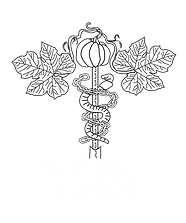
Kayla mcCarthy
I am a First-Generation Farmer. I am originally from Seattle and have been fortunate to call Western Washington home for my whole life. I grew up in the city suburbs with zero connection to farming or the food I ate. I discovered agriculture for the first time in my early twenties while I was deployed overseas in the U.S. Army. From there, my interest was piqued, and I never turned back. I continued to gain experience through volunteering and interning on various farms in Western Washington, before finally having an opportunity to start my own farm. After serving the past fourteen years in the U.S. Army and working in the healthcare industry, I was feeling a little crusty and worn out, like a hunk of overused, nutrient-depleted soil. I needed something to rejuvenate me and counteract the crust, so I created Chainy-Stakes Farm. In the process of growing this farm, I was able to take charge of my own health, happiness, and independence.

About the Farm
The farm is in the beautiful Independence Valley, nestled along the mighty Chehalis River on one acre of leased land. Due to our location in the Chehalis River floodplain, we have the luxury of farming in extremely fertile soil (Chehalis sandy silt loam), but also the challenges of flooding and/or atmospheric rivers, which bombard the valley at different degrees of detriment almost every winter. We acknowledge that the land on which we farm is located on the traditional lands of the Chehalis Tribe. We respect both past and present Chehalis people for stewarding this land and sharing this space with us. To preserve this land for future generations, we are committed to zero application of synthetic fertilizers, herbicides, or pesticides. We are dedicated to further regenerate this land by using natural agriculture practices such as rotational animal grazing, manure fertilization, cover cropping, and minimizing our tillage. We aim to honor these lands, rivers, creeks, and critters in such a way that would make our indigenous ancestors proud. We share this habitat with many wildlife species, small organisms, and mycorrhizal fungi that are undetectable with the naked eye. We wish to nourish the land in such a way that our friendly critter visitors have a safe, healthy, and vibrant home too.
About the Farm Name
Chainy-Stakes is a pun on a medical term called “Cheyne-Stokes Breathing.”
“Cheyne-Stokes Breathing” is a term describing the pattern of breathing that can occur as a person is dying. It is a breathing cycle that alternates between periods of apnea (absent breath) and hyperventilation. In the final stages of death, the breathing pattern may become more deep and rapid, before it eventually gets shallower and shallower, and then it stops.
Chainy-Stakes is a play on words. It honors my background as both a medic and nurse and signifies my shift towards becoming a farmer. I took a medical term associated with the breath of DEATH, switched around some letters, and spun it into a farm name that represents LIFE because that’s how farming makes me feel – ALIVE. Fullness is the sense that I embody when I am farming – I am the truest, most wholehearted version of myself, teeming to the brim with liveliness, my lungs full of fresh air.
Chainy-Stakes is more than just a name; it is a mantra. It constantly reminds me that not only can farming literally transform death into breath, but we can make mountains out of molehills, as the old saying goes. With this as my mantra, I wish to prove that morbidity can be transformed into vitality with the right amount of purpose and passion. Afterall, farming is the art of cultivating living organisms from decomposing organic matter – it is the circle of life!
Aside from the puns, the name Chainy-Stakes is significant because chains and stakes are both tools that we use heavily at the farm. We use chains to secure things: Small metal chains secure our gates. A heavy chain with a J-hook allows us to hang bulky objects from the bucket loader on the tractor. We use stakes to ground things. A variety of stakes are used on our farm to secure fencing. From the classic metal T-posts to cedar wood stakes, to plastic pigtail stakes, there is always a different stake for a different occasion. Despite the overarching utility of chains and stakes, they are seldom appreciated in comparison to more advanced farm tools. I enjoy drawing gratitude towards the underdog things in life.
About the Farm logo
The farm logo is modeled after the medical caduceus, which is an emblem represented all over the medical profession, including on the Army Nurse Corps insignia. Depicted on the medical caduceus are two serpents wrapped around a staff (pole weapon) with wings.
In my logo, you will see a T-post garden stake instead of the staff. A pumpkin on the top of the garden stake replaces the ball on the top of the staff. A metal chain and a worm are wrapped around the garden stake instead of two serpents. Finally, pumpkin leaves are depicted instead of wings on either side of the stake.
![iStock-643223918 [Converted]-01.png](https://static.wixstatic.com/media/852e5d_80441cd69ec640fcb6089fb7e3e4f6e1~mv2.png/v1/fill/w_346,h_346,al_c,q_85,usm_0.66_1.00_0.01,enc_avif,quality_auto/iStock-643223918%20%5BConverted%5D-01.png)




